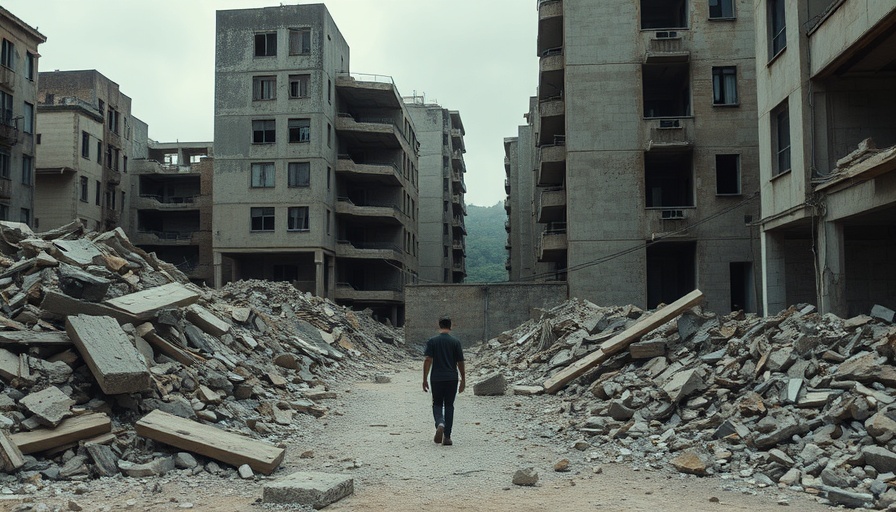
Hope on the Horizon: A Potential Ceasefire in Gaza
Recent reports from Egyptian sources indicate a significant breakthrough in the ongoing Gaza conflict. For the first time, there is an agreement on a long-term ceasefire that may provide relief to the civilian population of the besieged Gaza Strip. However, critical disputes remain, particularly focusing on the disarmament of Hamas, the group that has controlled Gaza for years.
The Need for Lasting Peace
The humanitarian crisis in Gaza has reached alarming levels, with countless families facing dire conditions as a result of ongoing conflict. After years of violence, many in the region long for a respite to rebuild and heal. The proposed ceasefire presents an opportunity for both sides to address the immense needs of civilians while working towards a more sustainable resolution to the conflict.
Gaza's Disarmament Dilemma
One major point of contention is the disarmament of Hamas. Supporters argue that for any lasting peace to emerge, Hamas must relinquish its military capabilities. This would not only ease tensions within Gaza but also foster better relations with neighboring countries and international bodies. Critics, however, warn that disarmament must be handled delicately to avoid further escalation of violence.
International Forces in Gaza?
Another significant development is the willingness of Hamas to possibly cede control of Gaza to the Palestinian Authority. Reports suggest that international forces could play a role in stabilizing the situation, making it vital for the Palestinian Authority to demonstrate its capacity to govern. Such a shift may also serve as a crucial first step toward enabling humanitarian aid to reach those in dire need.
What Does This Mean for the Persecuted Church?
Many Christians worldwide have been following the situation in Gaza with great concern, especially those involved in humanitarian efforts. The intersection of faith and political dynamics raises pressing questions about how global Christians can advocate for peace and support vulnerable populations. In the midst of political negotiations, there's a call for the world to remember the human aspect of the conflict, particularly the rights and voices of those who are often marginalized.
Emotional and Compassionate Responses Required
As the discussions unfold, it’s essential for believers and social justice advocates to engage compassionately. The plight of those affected by the conflict cannot be forgotten in the face of political maneuvering. Organizations working on the ground play a critical role in offering assistance and giving voice to the voiceless.
The Future Ride of Hope
While a ceasefire is a hopeful sign, it remains a temporary measure without substantial engagement from all parties involved. The need for ongoing dialogue and collaboration is crucial to creating an environment where peace can flourish. It’s also a chance for faith-based organizations to lead in advocating for justice and supporting those affected by ongoing violence.
Engagement in Gaza's peace process offers believers both an opportunity and a responsibility to advocate for humanitarian aid and prioritize loving our neighbors. As discussions evolve, let us not only pray for peace but take action that embodies our faith in practical and impactful ways.
In conclusion, as global citizens and followers of Christ, we must remain informed and active in seeking justice and peace in the Gaza Strip. Join us in prayer and action as we support the persecuted and advocate for a hopeful future for all inhabitants of the region. The time for compassionate engagement and advocacy is now!
 Add Row
Add Row  Add
Add 








Write A Comment